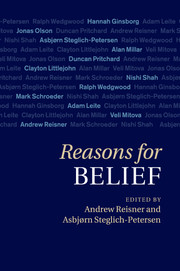Introduction
Published online by Cambridge University Press: 05 July 2011
Summary
Over the last three decades, practical philosophy has increasingly looked at, and become dependent upon, the concept of normative reasons for actions, and action-related propositional attitudes. The concept gradually came into prominence in a series of classic treatments in the late seventies and early eighties and has since then become the focal point and organizing concept for a vast array of work in both ethics and the philosophy of mind and action. The core of the concept is a simple one: normative reasons are facts that count in favor of some action or attitude; they are the facts that determine whether or not an agent ought to do something, or adopt some attitude. As such, normative reasons are often thought to be the most fundamental concept relevant to understanding rationality, which, on this view, is the capacity to recognize and respond to reasons in appropriate ways. The link to rationality means that normative reasons not only determine what ought to be done; at least sometimes, they also play the role of explaining why an agent in fact acted or thought as she did.
Even if there is broad agreement among philosophers on these fundamental features of reasons, a detailed understanding of reasons is still subject to controversy. What kinds of facts can act as reasons? Are they restricted to representational states such as beliefs or desires, or can non-mental states of affairs act as reasons as well?
Information
- Type
- Chapter
- Information
- Reasons for Belief , pp. 1 - 10Publisher: Cambridge University PressPrint publication year: 2011
